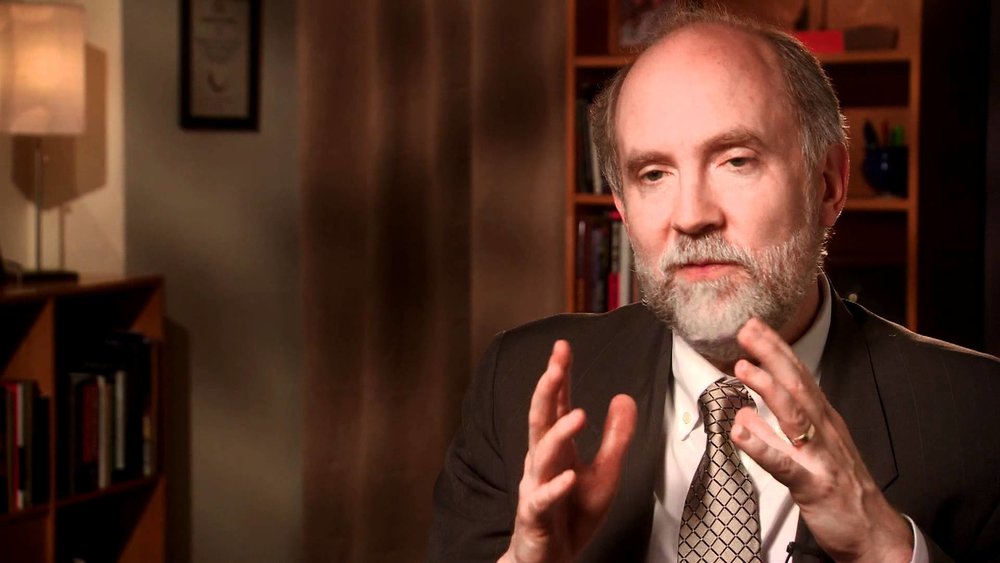JCPOA remains very much in Iran’s interest: Matthew Bunn

TEHRAN - Matthew Bunn, a specialist in nuclear security at Harvard’s John F. Kennedy School of Government, believes that continuing compliance with the JCPOA remains very much in Iran’s interest, and “I hope it will be possible to convince the Trump administration to comply with the JCPOA.”
“Further, it remains my hope that in the longer term all parties will be able to use the JCPOA as a foundation to build more cooperative and less conflict-ridden relations that would serve all of their national interests,” Bunn tells the Tehran Times in an exclusive interview.
Following is the full text of the interview:
Q: U.S. delegation in IAEA after recent session in IAEA announced that “We welcome the Director General’s statement that the IAEA continues to evaluate Iran’s declarations under the Additional Protocol, and to conduct complementary access inspections to sites and locations in Iran. Any new and credible concerns of undeclared nuclear activities, including any potential weaponization-related issues, can and must be pursued by the IAEA. According to this, what means “complementary access inspections to sites and locations in Iran”? Is this access beyond the Additional Protocol?
A: No, this is a normal part of implementation of the Additional Protocol, which has now been accepted by a strong majority of states in the world (129 states plus Euratom, at current count). The Additional Protocol gives the IAEA the right to carry out complementary access at both declared sites and other locations to clarify questions, carry out environmental sampling, and build a better understanding of the overall nuclear program of a state.
Q: Why U.S. again try to bring up Iran PMD Case in IAEA?
A: The U.S. government remains concerned about what appears to be past nuclear weapons work in Iran, and these questions have not been resolved. The IAEA’s “final” report on Iran’s past activities that appeared to be related to nuclear weapons research and development made clear that there were questions the agency had never been able to resolve, and that “The Agency’s overall assessment is that a range of activities relevant to the development of a nuclear explosive device were conducted in Iran prior to the end of 2003 as a coordinated effort, and some activities took place after 2003.”
Iran denied the Agency’s earlier conclusion that Iran had an organizational structure focused on nuclear weapons development prior to the end of 2003; nevertheless, the IAEA concluded that Iran did in fact at that time have an organizational structure in place “suitable for the coordination of a range of activities relevant to the development of a nuclear explosive device.” The IAEA further concluded that “Iran conducted computer modeling of a nuclear explosive device prior to 2004 and between 2005 and 2009.” The IAEA was unable to confirm Iran’s denials and explanations of a variety of other activities apparently related to development and testing of nuclear weapons components, and concluded that the information available to the IAEA “does not support” Iran’s explanations about the purpose of the suspect building at Parchin.
Q: IAEA Director General ask Iran for “more” verification about Section T. It seems that Director General Yukiya Amano’ message is closing to Nikki Haley, United States Ambassador to the United Nations. What is your opinion?
A: I think your interpretation is wrong. UN Security Council Resolution 2231 requests the IAEA to verify all of Iran’s nuclear-related commitments in the JCPOA, which includes Section T, and the IAEA’s Board of Governors approved verification of all the nuclear-related commitments of the JCPOA. The IAEA is doing what the Security Council and the Board of Governors asked it to do, using its existing inspections authorities under Iran’s safeguards agreement and the Additional Protocol, with some additional authorities agreed to in the JCPOA. UN Security Council Resolution 2231 also directs Iran to “cooperate fully as the IAEA requests to be able to resolve all outstanding issues.” In that context, I would urge Iran to provide the IAEA, as Director-General Amano has asked, with an accurate and complete baseline declaration of its past activities related to Section T.
Q: Iran's Ambassador to the IAEA Reza Najafi highlighted that “ by limiting Iran’s benefits from the deal the US Government in contradiction with both letter and spirit of the agreement, particularly paragraphs 26, 28 and 29 of the JCPOA, has taken a negative approach to undermine “successful implementation” of the JCPOA.” This statement is while U.S. try to place sanction Iran on the name of Human Rights and terrorism. What will happen for JCPOA if Iran limited from benefiting of the agreement?
A: The United States has, as it agreed, lifted all of its nuclear-related sanctions, though sanctions related to other topics remain in place – as Iran clearly understood would be the case. UN sanctions have been lifted, as have EU sanctions. Iran is receiving, as a result, substantial benefits in trade and investment. These benefits have been less than Iran had hoped, however, both because of continuing U.S. sanctions in other areas and because of problems within Iran that undermine foreign investors’ enthusiasm, from lack of transparency in the banking system, to corruption, to the economic role of entities such as the Revolutionary Guard in a wide range of companies within Iran. I believe that continuing compliance with the JCPOA remains very much in Iran’s interest, and I hope it will be possible to convince the Trump administration to comply with the JCPOA. Further, it remains my hope that in the longer term all parties will be able to use the JCPOA as a foundation to build more cooperative and less conflict-ridden relations that would serve all of their national interests.
Leave a Comment